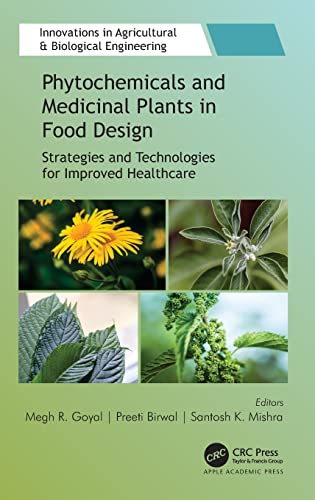

Most ebook files are in PDF format, so you can easily read them using various software such as Foxit Reader or directly on the Google Chrome browser.
Some ebook files are released by publishers in other formats such as .awz, .mobi, .epub, .fb2, etc. You may need to install specific software to read these formats on mobile/PC, such as Calibre.
Please read the tutorial at this link: https://ebookbell.com/faq
We offer FREE conversion to the popular formats you request; however, this may take some time. Therefore, right after payment, please email us, and we will try to provide the service as quickly as possible.
For some exceptional file formats or broken links (if any), please refrain from opening any disputes. Instead, email us first, and we will try to assist within a maximum of 6 hours.
EbookBell Team

5.0
28 reviewsPhytochemicals and Medicinal Plants in Food Design: Strategies and Technologies for Improved Healthcareexplores the therapeutic potential of various natural and novel phytochemicals in the design of new foods. Divided into two parts, the first section discusses plant-based secondary metabolites for healthcare, focusing on the health aspects of herbs and medicinal plants and nutraceuticals for livestock production and for the treatment of diseases such as HIV and diabetes. The authors also address the benefits of preserving indigenous knowledge of medicinal plants and current consumer views of health issues from foods. The second part delves into the design and utilization of healthy foods. This section discusses the application of novel designs and herbal formulations in conjunction with other biomolecules for the development and utilization for food products with health benefits. Key features: This informative volume will be valuable for faculty, students, scientists, researchers, and industry professionals in the development of superfoods from phytochemicals and medicinal plants.